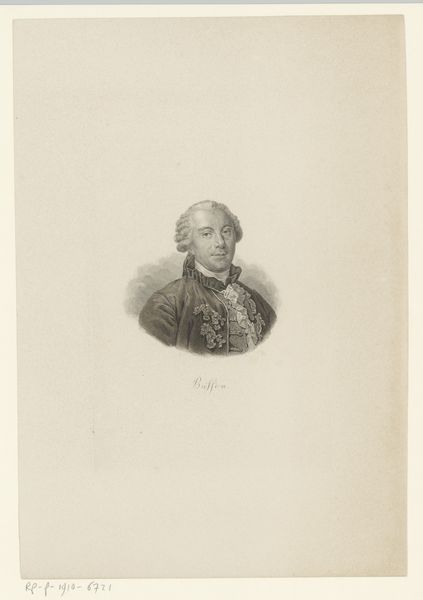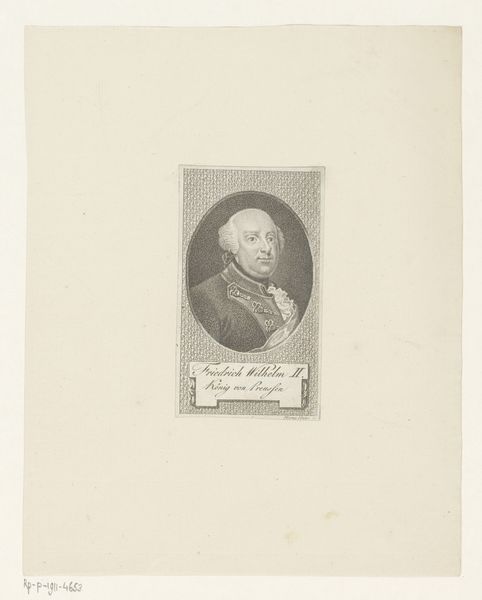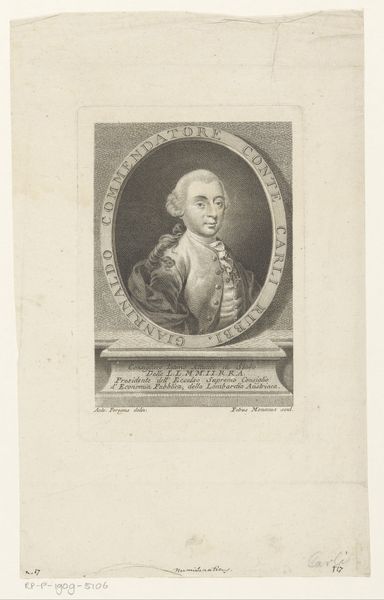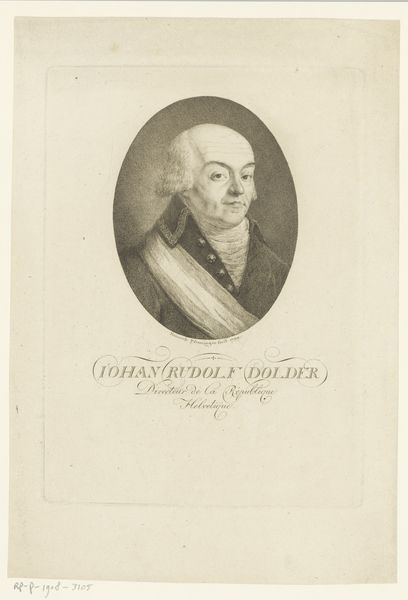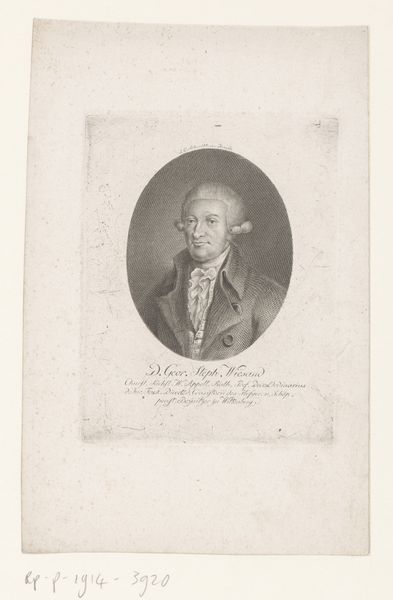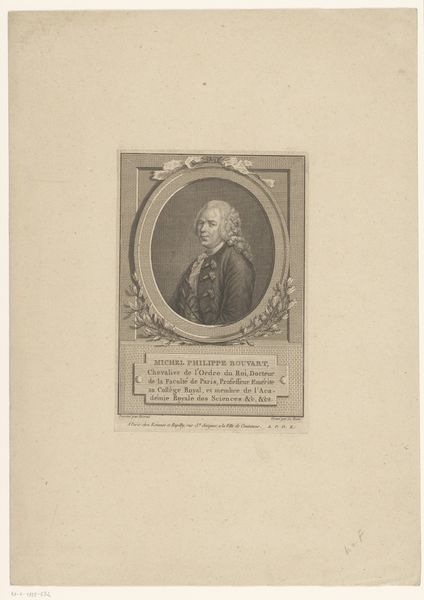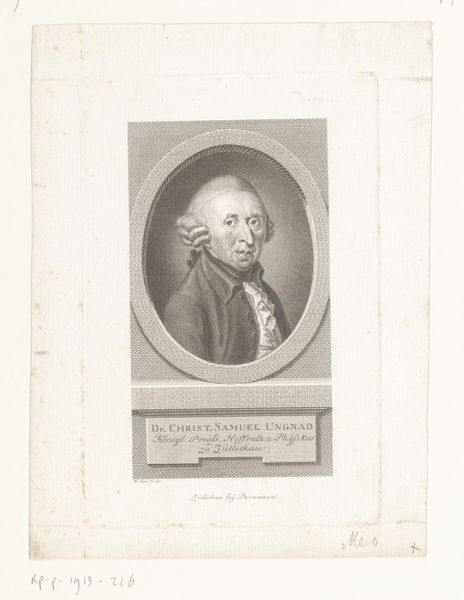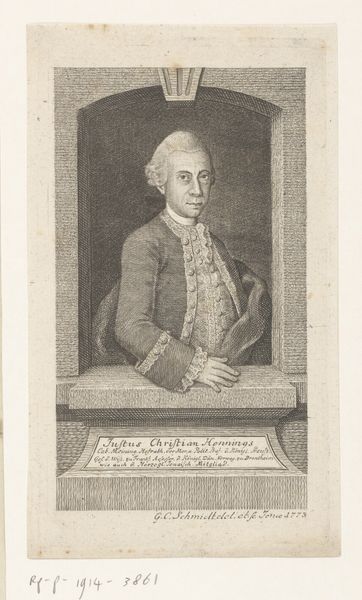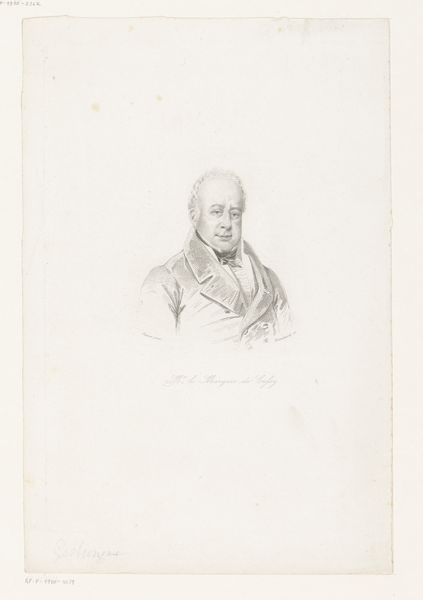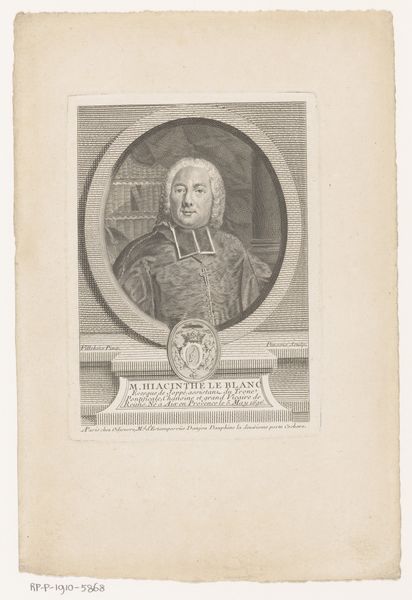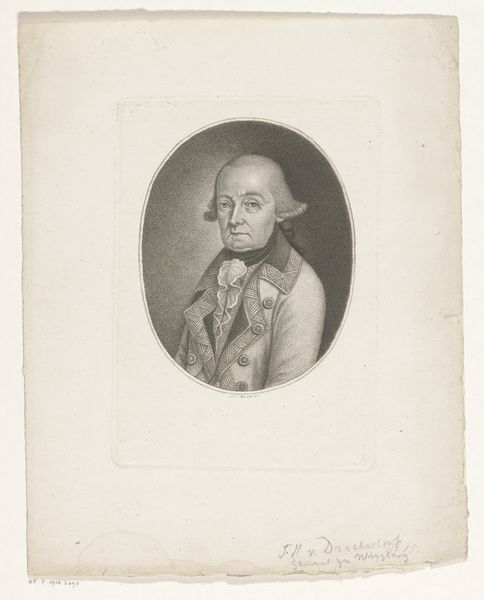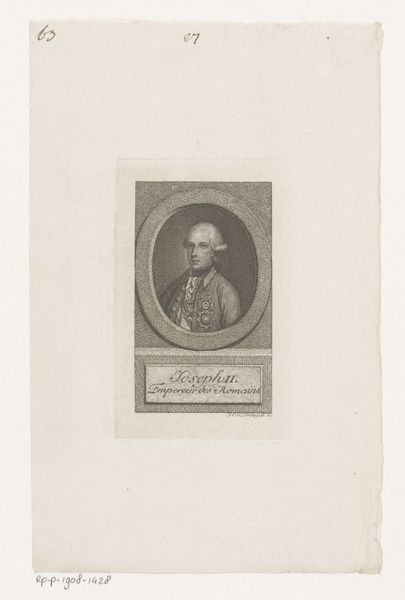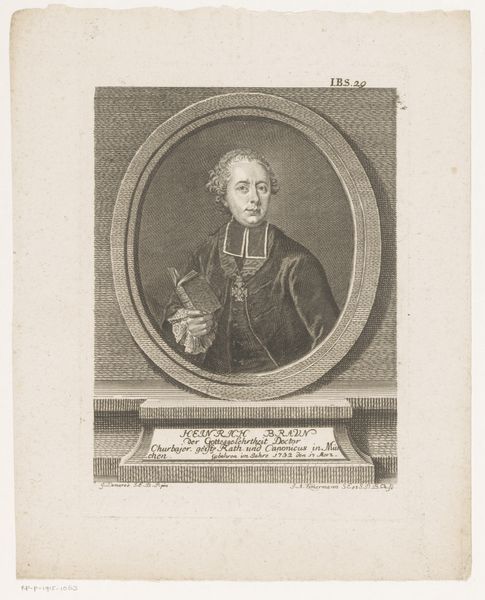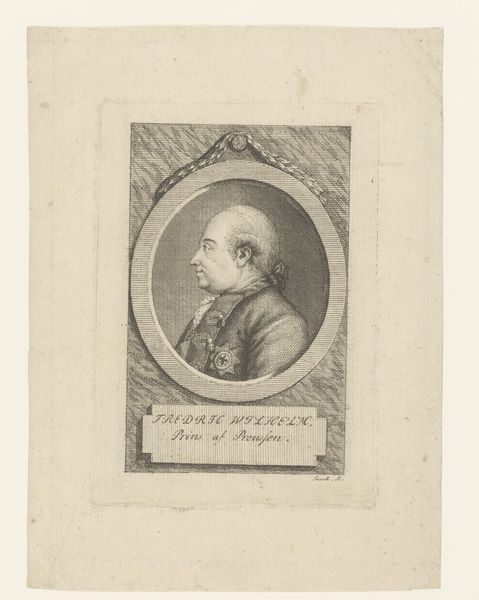
drawing, print, paper, ink, engraving
#
portrait
#
pencil drawn
#
drawing
#
neoclacissism
# print
#
charcoal drawing
#
paper
#
ink
#
pencil drawing
#
pencil work
#
academic-art
#
engraving
#
realism
Dimensions: height 228 mm, width 177 mm
Copyright: Rijks Museum: Open Domain
Editor: This is a portrait of Maximiliaan I Jozef, King of Bavaria, created by Johann Gottlieb Boettger in 1804. It looks like it's made from ink and engraving on paper. It’s very…stately, almost austere. What do you see in this print? Curator: For me, the key is understanding the production process and the materials used in making it. We have ink, engraving, paper: common materials, but consider the labor involved in the engraving process, turning what may have started as a drawing into a reproducible print. The use of print allowed this image of Maximilian to be disseminated widely. It connects directly to power: How does the process reinforce his image as a ruler? Editor: That's interesting. I was focused on the artistic skill, but thinking about it as a means of production changes things. So the artist, Boettger, is almost acting as a manufacturer here? Curator: Exactly. Think about the social context too. The rise of the printing press shifted the concept of the ‘original’ artwork. It wasn't about this single unique object, it's more about accessibility, reaching as many people as possible, thus communicating power. Where was this printed, and who controlled its distribution? Editor: That definitely gives me a different perspective. I was thinking about the sitter and the artist. Now I'm realizing the importance of the craft involved in making the engraving and the socio-economic factors. Curator: The intersection of art and material processes can highlight power relations, shifts in the idea of what makes "high art", and how labor is consumed. Editor: I never considered the material aspects of printmaking as such a direct part of understanding the message. Curator: Hopefully now you can see beyond the surface and recognize the tangible elements shaping our cultural understanding of even a king's portrait.
Comments
No comments
Be the first to comment and join the conversation on the ultimate creative platform.
